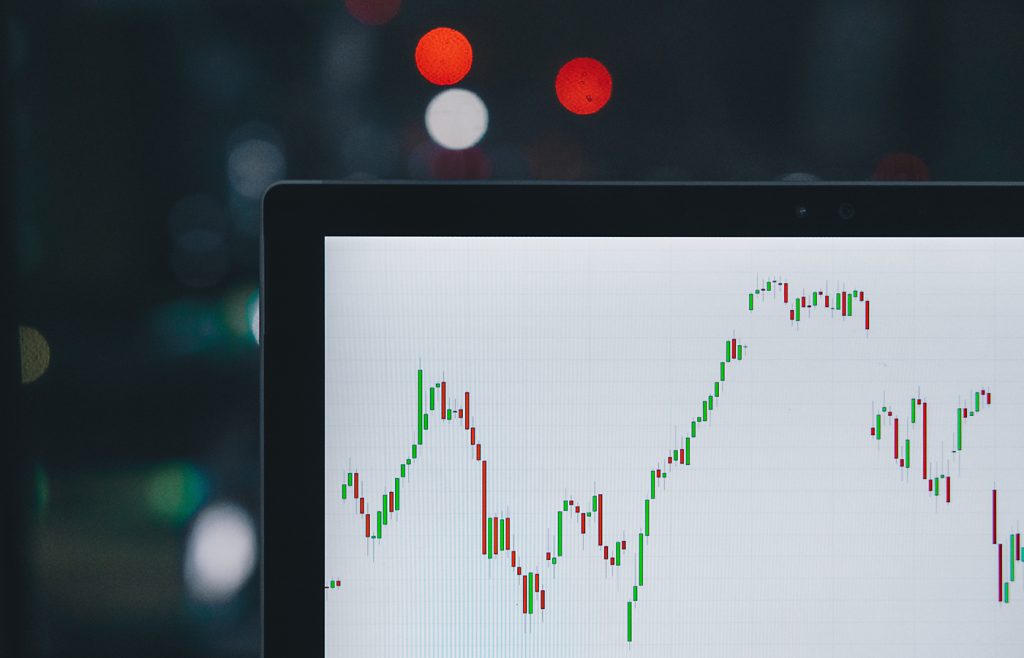
Every day, financial journalists have to write about why the market moved. They interview market participants as they try to ferret out the predominant factor behind the change in the market that day.
It’s interesting to listen to these views, but do they mean anything? Maybe a little bit. To understand, it’s helpful to dig into exactly what the market is.
Because the market is made up of human beings, there is a tendency to think of the market the way one might think of a single, highly ration-al person. We think, “The market did ____ because ____,” as if a rational decision maker decided on a particular course of action based on one significant factor.
The reality is that the market is nothing more than a place where millions of different traders and investors engage in buying and selling stock every day.
If you want to buy a stock, you need to find a seller, and if you want to sell a stock, you need to find a buyer. The market is that one regulated place where both buyers and sellers can find their counterparts and trade with confidence that the transactions will be done properly and recorded accurately.
The buys and sells take place through brokerage companies, and in the ordinary course of business, we do not know who bought from us or who sold stock to us. We only know the brokerage company that handled the transaction.
So who are these buyers and sellers? They could be mutual fund managers, pension fund managers, corporate treasurers, private individuals who might be professional traders, or just someone making a rare tweak to their portfolio. They might be estate executors or endowment fund managers.
In short, they could be almost anyone. And the motivations that all these different people have to buy or sell may have little or nothing to do with what’s going on in politics, the economy, or the company itself. In other words, all the reasons that you are likely to hear in the news about why the market moved up or down may not actually be why a lot of the trades occured that day.
A pension fund that needs money for disbursements to its pensioners isn’t likely to consider the news. It’s selling because it needs that money on a certain date. The same is true of someone settling an estate or cashing out an account to pay off debts.
And there’s also size to factor in. Try buying $100 million worth of a single stock. I know, classy problem, right? But if you try to buy that much of anything, the very act of trying will drive the price up. There are more $100 billion pension funds than most people realize and none of them is able to move easily in and out of a position. And that’s just pension funds. There are also large numbers of $100 billion and larger endowments, mutual funds, sovereign wealth funds, and so on.
When a journalist writes that the market went up today because some official said something, do you really think that the people I have described above care? Probably not. In fact, there’s a good chance that many were not even remotely aware that anyone said anything significant. They were buying or selling to fulfill their own needs and goals.
So why does the market move on news?
You can think of the world of traders and investors—in other words, “the market”—as being divided into short-term and long-term participants. On any random day, the overwhelming majority of transactions are done by short-term traders.
Today, a great deal of this has become automated. Machines can react to economic news, company news, world events, etc., and take into account all the other factors one might wish far faster than any human. Millions of shares get traded in the blink of an eye.
And markets jump as a result. It’s not long-term investors that violently move their money around the moment some piece of news comes out. It’s short-term traders, and increasingly that means machines.
So now, reflecting a bit on how markets actually work, what do you think it means when you hear on the radio or see on the TV that the market moved for this or that reason?
It means that we, the public, want a story that is far, far simpler than what actually happened. What really is happening at any moment in the stock market is so complex that I am certain no single person knows the answer.
Hal Masover is a Chartered Retirement Planning Counselor and a registered representative. His firm, Investment Insights, Inc is at 508 N 2nd Street, Suite 203, Fairfield, IA 52556. Securities offered through, Cambridge Investment Research, Inc, a Broker/Dealer, Member FINRA/SIPC. Investment Advisor Representative, Cambridge Investment Research Advisors, Inc., a Registered Investment Advisor. Investment Insights, Inc & Cambridge are not affiliated. Comments and questions can be sent to hal.masover@emailsri.com These are the opinions of Hal Masover and not necessarily those of Cambridge, are for informational purposes only, and should not be construed or acted upon as individualized investment advice. Investing involves risk. Depending on the types of investments, there may be varying degrees of risk. Investors should be prepared to bear loss, including total loss of principal. Past performance is no guarantee of future results.Indices mentioned are unmanaged and cannot be invested in directly.
